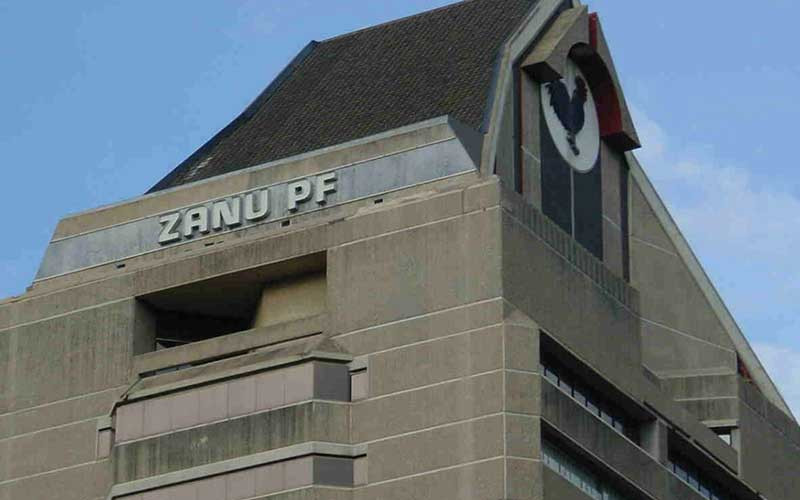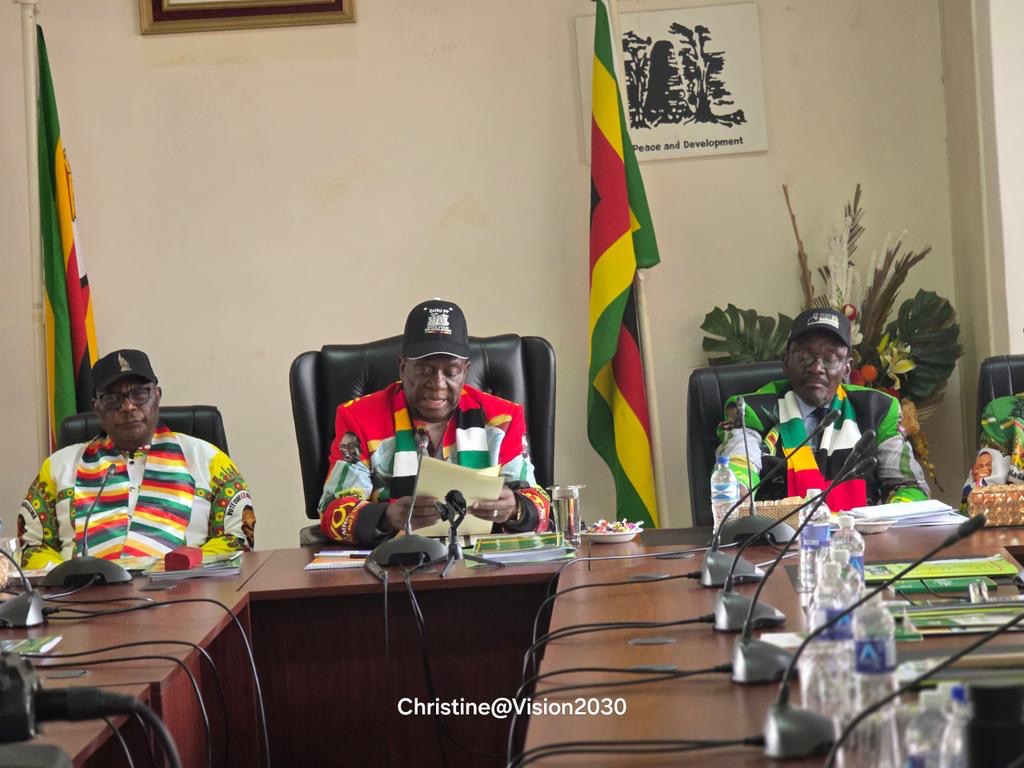By Political Editor
Harare – Barely a month after its members confessed to having been given Mozambican identity cards and ordered to vote in its elections, and later fingered in attempted rigging of polls in Botswana, Zimbabwe’s ruling Zanu PF party is causing headaches in Namibia.
Namibia, which like Mozambique and Botswana was at the polls recently, is battling to deal with how Zanu PF aligned individuals have permeated its electoral processes, including being awarded a tender to print ballot papers.
If recent events are any indicator, Zanu PF’s fingerprints on elections in the region has left behind a trail of political instability, economic downturns, and fractured societies.
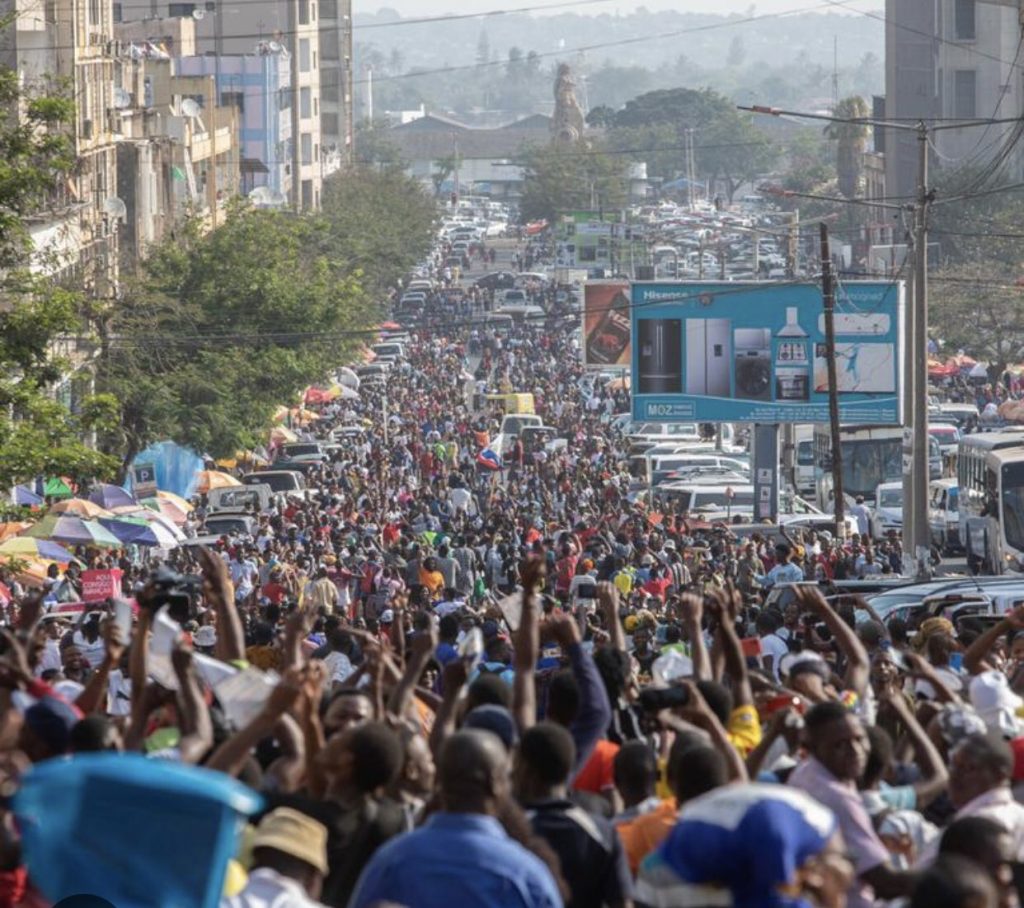
Thousands of Mozambicans flood the streets in ongoing protests against the election results, which declared FRELIMO candidate Daniel Chapo the winner with over 70 percent of the vote.
A South African company, Ren-Form CC, linked to flamboyant Zanu PF apologist Wicknell Chivayo printed ballot papers for the Namibian polls while Priscilla Chigumba, head of Zimbabwe electoral body ZEC led an observer mission of similar bodies at the same elections.

The Electoral Commission of Namibia (ECN) awarded a US$60 million to supply all election materials, including ballot papers
Claims of rigging, described by opposition leader Panduleni Itula of the Independent Patriots for Change (IPC) party, have since been raised in the election won by ruling party SWAPO’s Netumbo Nandi-Ndaitwah.
Nandi-Ndaitwah is Namibia’s first female President.
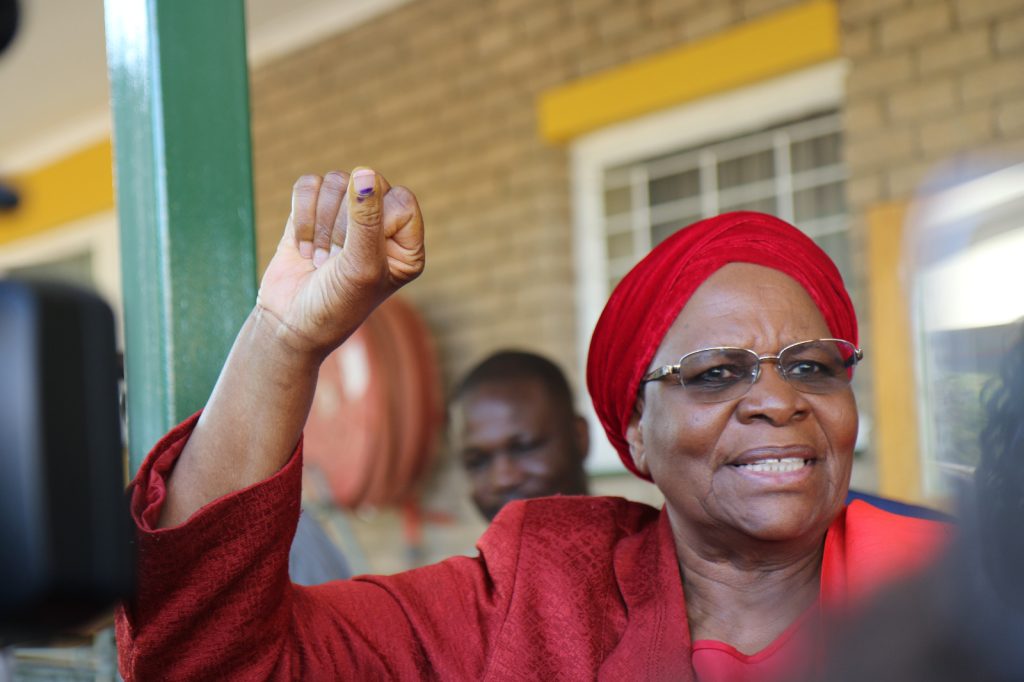
Netumbo Nandi-Ndaitwah, 72, secured 57% of the vote in an election plagued by technical issues, including ballot paper shortages, which extended voting from Wednesday to Saturday.
The claims are similar to those raised by then Citizens Coalition for Change (CCC) president Nelson Chamisa.
Some areas occupied by the 1.5 million eligible Namibian voters did not receive voting material, while technical malfunctions were reported in perceived opposition strongholds.
Speaking at a press conference recently, Affirmative Repositioning leader Job Amupanda did not mince his words, warning that Zanu PF’s meddling could spell disaster for Namibia, making reference to the Zimbabwean situation.
“Zanu PF will side with one faction of the ruling party and create a lot of chaos,” Amupanda asserted.
He pointed to recent online activities as evidence of Zanu PF’s interest in Namibian politics.
“You have Zanu PF people on X celebrating what is happening here when some SWAPO people are quiet.
“Why is Zanu PF celebrating? After they printed the ballot what do they want in exchange? We are warning those SWAPO people that one day they will remember these words,” added Amupanda.

Affirmative Repositioning leader Job Amupanda criticized the elections as neither free nor fair, highlighting several issues he believes undermined the integrity of the process.
Amupanda further criticized strategies he believes are aimed at rigging elections through external influence.
“It is fine to think that you have a strategy, to rig the election, to use Zanu PF.
“We ought to say, all of us, whether you are SWAPO, you were given birth in this country.
“You can be sitting there as a commissioner or CEO but remember you were born in this country, you have children in this country,” said Amupanda.
He added: “One day you are going to be in your 70s, in your 90s and your country will be in such a mess because of the seed that you have planted.”
Amupanda expressed concern that Zanu PF could embed itself in Namibia’s institutions.
He also predicted that, should internal factional battles within SWAPO escalate, Zanu PF would align with any political party it sees as an opportunity for influence.
“Zanu PF is going to integrate itself in our intelligence system, in our civil society, in our business sector and all facets of society.
“I can guarantee you this, when those factions continue to fight and lose power, Zanu PF will run to the nearest available political party,” Amupanda asserted.
Zanu PF’s influence in Namibia is not an isolated case.
The party, a prominent figure within the alliance of southern Africa’s former liberation movements including Namibia’s SWAPO, South Africa’s ANC, and Mozambique’s FRELIMO has a long history of leveraging these regional ties for political gain.
SWAPO, which has held power for 34 years, is grappling with the same challenges facing other liberation movements across southern Africa, waning public support and mounting demands for change.
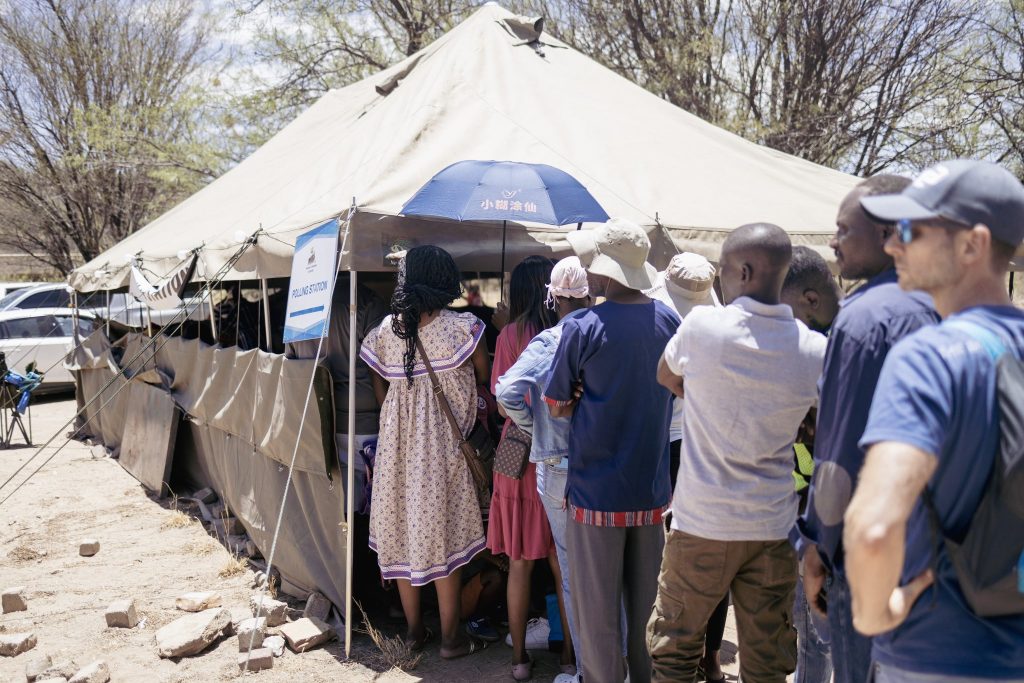
Namibians standing in line to cast their votes during last week’s disputed election.
The recent election, marred by irregularities, has only intensified these pressures, highlighting the SWAPO’s struggle to maintain its dominance in an era of shifting political dynamics.
Liberation parties, in response to the waning support and shifting political dynamics, resolved to consolidate power and resist political erosion, particularly after the ANC’s significant electoral losses in South Africa.
Zanu PF has however, remained unscathed.
Its survival strategy hinges on an iron grip over state security agencies, manipulation of electoral processes, and control of the legal system.
Elections in Zimbabwe have routinely been skewed in its favour, with state security forces intimidating, assaulting, and even killing opposition activists.
Meanwhile, Zanu PF’s youth militias have operated with impunity, further entrenching its dominance.
Analysts warn that Zanu PF’s influence extends beyond immediate political turmoil, it sets the stage for enduring socio-economic instability.
In Zimbabwe, the party’s relentless pursuit of power has driven the nation into one of the worst economic collapses in modern history.
Hyperinflation, chronic unemployment, and mass emigration are not merely statistics; they represent the lived realities of countless Zimbabweans who have borne the brunt of Zanu PF’s policies.
These are human stories of struggle, desperation, and resilience grim reminders of what unchecked political hegemony can unleash.
Zanu PF’s legacy serves as a cautionary tale for the region, underscoring the need for vigilance against similar patterns of influence elsewhere in southern Africa.
